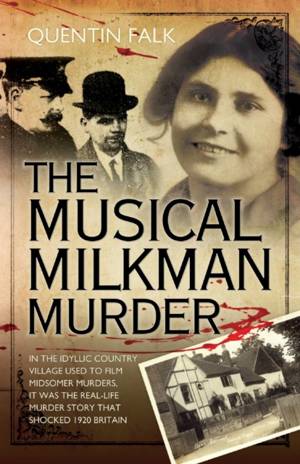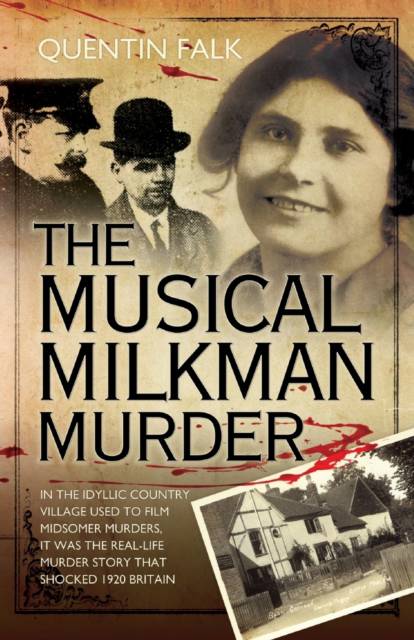
- Afhalen na 1 uur in een winkel met voorraad
- Gratis thuislevering in België vanaf € 30
- Ruim aanbod met 7 miljoen producten
- Afhalen na 1 uur in een winkel met voorraad
- Gratis thuislevering in België vanaf € 30
- Ruim aanbod met 7 miljoen producten
Zoeken
The Musical Milkman Murder - In the idyllic country village used to film Midsomer Murders, it was the real-life murder story that shocked 1920 Britain
Quentin Falk
Paperback | Engels
€ 11,45
+ 22 punten
Omschrijving
Long before the picturesque village of Little Marlow became a well-known location for filming episodes of popular television crime shows such as Inspector Morse, Miss Marple and Midsomer Murders, the tranquil Thameside hamlet was the site of a real-life murder that would have taxed the imagination of even the most inventive TV screenwriter. In the immediate aftermath of the Great War, Little Marlow was thrown into a state of great excitement by the discovery of the body of a young married woman named Kate Lilian Bailey. The scene of the tragedy was Barn Cottage, a pretty countryside residence; the weapon of choice was poison, and the man accused of the murder was local milkman, George Bailey - Kate's husband. Who was George Arthur Bailey? What drove this seemingly harmless milkman to murder his wife? Who, or what, sealed his fate? Almost a century later, through exhaustive research, author Quentin Falk brings to light the extraordinary and colourful facts of this strangely under-reported crime to reveal not just one astonishing story, but an intriguing crime and compelling weave of several stories. The Musical Milkman Murder paints a vivid picture of rural society in early 20th century England, reveals the grisly tale of a star-crossed couple torn apart by poison - that subsequently lead to an execution and the suicides of a judge and a hangman - and the tragic story of a daughter who would take half a lifetime to discover the terrible truth behind her parentage.
Specificaties
Betrokkenen
- Auteur(s):
- Uitgeverij:
Inhoud
- Aantal bladzijden:
- 274
- Taal:
- Engels
Eigenschappen
- Productcode (EAN):
- 9781857828078
- Verschijningsdatum:
- 3/09/2012
- Uitvoering:
- Paperback
- Formaat:
- Trade paperback (VS)
- Afmetingen:
- 127 mm x 193 mm
- Gewicht:
- 204 g

Alleen bij Standaard Boekhandel
+ 22 punten op je klantenkaart van Standaard Boekhandel
Beoordelingen
We publiceren alleen reviews die voldoen aan de voorwaarden voor reviews. Bekijk onze voorwaarden voor reviews.







